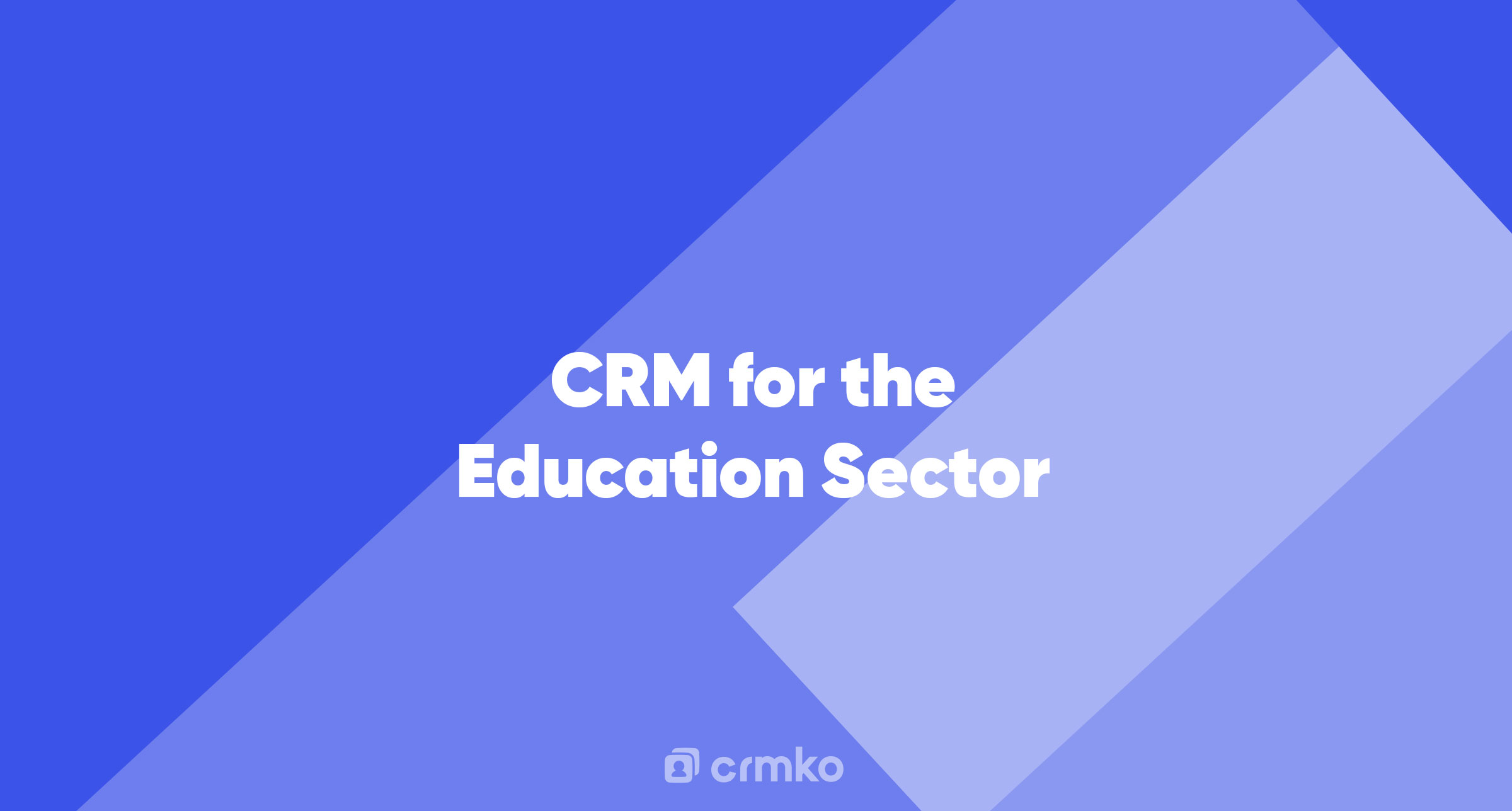Student engagement and enrollment plays a crucial role in the success of educational institutions, having an effective Customer Relationship Management (CRM) system is more important than ever. CRM tools have become essential for educational organizations to attract prospective students, streamline admissions processes, enhance student experiences, and boost enrollment rates. But what exactly is CRM, and why do educational institutions need it?
CRM, or Customer Relationship Management, is a technology-driven strategy that helps organizations manage and analyze their interactions with current and potential customers. In the context of the education sector, CRM allows institutions to track and manage student data, streamline communication with prospective students, personalize student experiences, and make data-driven decisions to enhance enrollment efforts.
Educational organizations have unique needs when it comes to CRM. They deal with a vast amount of student data, such as admission applications, enrollment information, grades, and alumni records. Additionally, they must navigate complex processes like prospecting, admissions, course management, and alumni engagement. A robust CRM system specifically designed for the education sector can address these challenges and provide solutions tailored to the needs of educational institutions.
In this comprehensive guide, we will explore the benefits of using CRM in the education sector, highlight the top CRM products suitable for educational organizations, and delve into their key features and functionalities. Whether you are a K-12 school, a university, or an EdTech company, this guide will help you make an informed decision about selecting the best CRM solution for your specific needs.
Benefits of Using CRM for the Education Sector
Implementing a CRM system in the education sector offers numerous advantages for educational institutions. Let's explore the key benefits that CRM brings to the table:
1. Improved Student Engagement and Enrollment
One of the primary goals of educational institutions is to attract and engage prospective students. A CRM system allows organizations to effectively manage student interactions throughout the enrollment journey, from initial inquiries to enrollment and beyond. By capturing and storing student data, CRM enables personalized communication and targeted marketing campaigns that resonate with prospective students' interests and preferences.
CRM also facilitates seamless communication between students, parents, teachers, and administrators, ensuring everyone is informed and engaged in the educational process. By providing a centralized platform for managing student relationships, CRM helps educational institutions enhance student engagement, ultimately leading to higher enrollment rates.
2. Streamlined Admissions Process
The admissions process is a critical stage in the student lifecycle, and educational institutions need an efficient system to manage applications, track candidate progress, and make informed admissions decisions. CRM streamlines the admissions process by automating manual tasks, such as document management, application tracking, and communication with applicants.
With CRM, educational institutions can easily track and evaluate each applicant's qualifications, update their status in real-time, and generate comprehensive reports for admissions committees. This streamlines the admissions workflow, reduces administrative burden, and ensures a smooth and efficient process for both applicants and admissions staff.
3. Personalized Student Experiences
Every student is unique, with different needs, interests, and aspirations. CRM enables educational institutions to personalize the student experience by capturing and analyzing student data to gain insights into their preferences, academic performance, and engagement levels. This information can be used to tailor educational offerings, support services, and communication strategies to meet each student's specific needs.
By providing personalized recommendations for courses, extracurricular activities, and support services, CRM helps students feel valued and supported throughout their educational journey. This personalized approach enhances student satisfaction, engagement, and retention, contributing to the overall success of the educational institution.
4. Data-Driven Decision Making
Educational institutions generate a vast amount of data, ranging from student demographics and academic performance to alumni engagement and fundraising efforts. CRM systems consolidate and analyze this data, providing educational institutions with valuable insights to drive data-driven decision making.
By leveraging CRM analytics and reporting capabilities, educational institutions can identify trends, track key performance indicators, and make informed decisions regarding enrollment strategies, course offerings, resource allocation, and fundraising initiatives. This data-driven approach enhances institutional effectiveness, efficiency, and competitiveness in the education sector.
5. Enhanced Alumni Relations and Fundraising
Alumni play a crucial role in the success of educational institutions. They are valuable resources for mentorship, networking, and fundraising opportunities. CRM systems enable educational institutions to maintain strong relationships with alumni by tracking their engagement, interests, and contributions.
With CRM, educational institutions can streamline alumni communication, send targeted appeals for donations, and track fundraising progress. By nurturing strong alumni relationships, educational institutions can leverage their support to enhance programs, scholarships, and facilities, ultimately benefiting current and future students.
6. Increased Efficiency and Productivity
CRM systems automate manual and repetitive tasks, freeing up staff time to focus on higher-value activities, such as student counseling, strategic planning, and relationship building. By streamlining administrative processes, educational institutions can improve efficiency, reduce errors, and enhance productivity across various departments.
CRM provides a centralized platform for managing student information, communication logs, schedules, and tasks, ensuring that staff members have access to the information they need in one place. This eliminates the need for multiple systems and reduces the risk of data duplication and loss.
Conclusion
CRM has become a critical tool for educational institutions seeking to enhance student engagement, streamline admissions processes, and boost enrollment rates. By implementing a CRM system specifically designed for the education sector, educational organizations can personalize student experiences, make data-driven decisions, and foster strong relationships with students, alumni, and donors.
From Zoho CRM for Education's comprehensive features to Salesforce Education Cloud's AI-driven insights, educational institutions have a range of CRM options to choose from. By selecting the right CRM solution that aligns with their specific needs, educational organizations can harness the power of CRM to revolutionize student engagement and enrollment, ultimately shaping the future of education.
